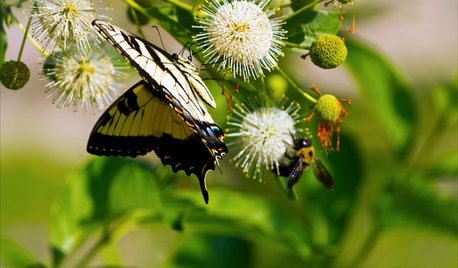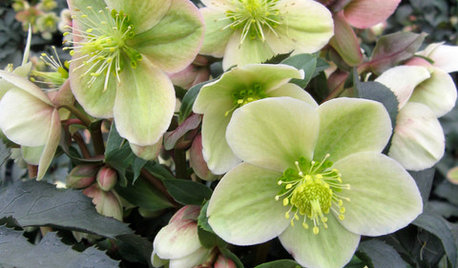UK Dept. of Entomology wants to inspect plants I bought online
cearbhaill (zone 6b Eastern Kentucky)
10 years ago
Related Stories

MOVINGHome-Buying Checklist: 20 Things to Consider Beyond the Inspection
Quality of life is just as important as construction quality. Learn what to look for at open houses to ensure comfort in your new home
Full Story
CONTRACTOR TIPSBuilding Permits: The Final Inspection
In the last of our 6-part series on the building permit process, we review the final inspection and typical requirements for approval
Full Story
DECORATING GUIDES10 Easy Fixes for That Nearly Perfect House You Want to Buy
Find out the common flaws that shouldn’t be deal-breakers — and a few that should give you pause
Full Story
BATHROOM DESIGNHouzz Call: Have a Beautiful Small Bathroom? We Want to See It!
Corner sinks, floating vanities and tiny shelves — show us how you’ve made the most of a compact bathroom
Full Story
GARDENING GUIDESGreat Design Plant: Cephalanthus Occidentalis
Buttonbush is an adaptable woody shrub with delightful pincushion flowers
Full Story
FUN HOUZZEverything I Need to Know About Decorating I Learned from Downton Abbey
Mind your manors with these 10 decorating tips from the PBS series, returning on January 5
Full Story
WINTER GARDENINGGreat Design Plant: Gold Collection Hellebores Perform Like Stars
Exciting colors, longer bloom times, forward-facing flowers ... These hybrids leave old hellebores in the dust
Full Story
FARM YOUR YARDHow to Build a Raised Bed for Your Veggies and Plants
Whether you’re farming your parking strip or beautifying your backyard, a planting box you make yourself can come in mighty handy
Full Story
HOUSEPLANTS10 Top Plants to Grow Indoors
Brighten a room and clean the air with a houseplant that cascades artfully, stretches toward the ceiling or looks great on a wall
Full Story
FUN HOUZZDon’t Be a Stickybeak — and Other Home-Related Lingo From Abroad
Need to hire a contractor or buy a certain piece of furniture in the U.K. or Australia? Keep this guide at hand
Full Story






Sara Malone Zone 9b
davidrt28 (zone 7)
Related Professionals
Brentwood Landscape Architects & Landscape Designers · Ferndale Landscape Architects & Landscape Designers · South Elgin Landscape Architects & Landscape Designers · Edmond Landscape Contractors · Wilmington Landscape Contractors · Ashburn Landscape Contractors · Caldwell Landscape Contractors · Cicero Landscape Contractors · Dallas Landscape Contractors · Downey Landscape Contractors · Middle River Landscape Contractors · Oakland Landscape Contractors · Post Falls Landscape Contractors · Snoqualmie Landscape Contractors · Lauderdale Lakes Landscape Contractorsdavidrt28 (zone 7)
salicaceae
cearbhaill (zone 6b Eastern Kentucky)Original Author
j0nd03
davidrt28 (zone 7)
Teri Deger
fairfield8619
j0nd03
whaas_5a
fairfield8619
arktrees
arktrees
fairfield8619
pineresin
Sara Malone Zone 9b
abciximab